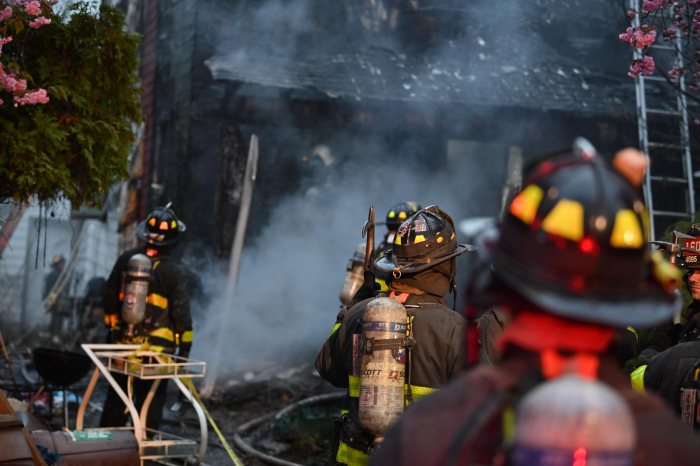By Alexander Dworkowitz
A Queens judge denied the request for a preliminary injunction sought by Falun Gong practitioners to stop two Chinese newspapers from printing what they had contended were libelous articles about their group last Thursday.
Former Queens Councilman Sheldon Leffler, representing 70 Falun Gong practitioners, asked State Supreme Court Judge Duane Hart to force New York City-based China Press and Sing Tao Daily to stop publishing articles containing “negative terms” about Falun Gong and photographs of the group.
Twenty-seven of the 70 plaintiffs in the lawsuit against the two newspapers are Queens residents. The non-profit advocacy group called Friends of Falun Gong is also a plaintiff in the suit.
Leffler contended that seven China Press articles and one Sing Tao article had libeled the group and asked Hart to prevent the two newspapers from publishing defamatory stories on the Falun Gong.
But Hart found that Leffler failed to prove the eight articles in question had produced “irreparable harm” to the Falun Gong practitioners and refused to issue the requested injunction.
“The defendants are free to publish whatever they want to,” said Hart in his Jamaica courtroom as he ruled against granting the Falun Gong’s request for a preliminary injunction.
The judge gave Leffler until July 8 to come up with any additional evidence that the China Press and Sing Tao had caused the Falun Gong “irreparable harm.”
Leffler has said he plans to file a libel suit seeking $50 million in damages from the China Press and $1 million from Sing Tao Daily.
The court case revolves around the exercise-based Chinese sect known as the Falun Gong, or Falun Dafa.
Based on traditional Chinese practices, the Falun Gong was officially founded as a spiritual movement in 1992 in China. In 1999, Chinese President Jiang Zemin outlawed the practice within the nation.
Since that time, hundreds of Falun Gong practitioners have been tortured to death in China, the international human rights group Amnesty International has said.
In recent years, the Falun Gong has found a home in Queens. Many of its practitioners live in Flushing, which has the highest population of Chinese-Americans in the borough.
In the courtroom, Leffler discussed the eight articles he said libeled the character of the plaintiffs.
Several of the articles falsely accuse Falun Gong practitioners of murder and describe the practice as inducing psychosis, Leffler said.
Since the two newspapers are the primary source of news for many Chinese-speaking residents living in the New York City region, Leffler said the articles had resulted in a loss of reputation and job opportunities for Falun Gong practitioners in the city.
“We believe it constitutes a campaign against Falun Gong practitioners,” Leffler told the court.
But Floyd Abrams, attorney for the China Press, told Hart that no judge in the history of New York state had ever issued an injunction of prior restraint before a libel case went to trial.
Abrams is one of the nation’s premier First Amendment lawyers, having represented The New York Times, CNN and Time Magazine.
After the proceedings, Leffler said the day’s events were a small first step in what could become a lengthy case.
“It’s a first glimpse of what may turn out to be a long march,” he said.
Both during and after the proceedings, Abrams began to outline an argument that he plans to use in further court hearings.
Abrams noted that not one of the articles the Falun Gong had classified as libelous mentioned the names of any of the plaintiffs.
“The newspapers’ articles don’t say anything about the quote Friends of Falun Gong,” he said. “Someone cannot say, ‘I feel bad because they attacked my religion…’ It has to be the person itself attacked.”
But the legal arguments made little sense to many Falun Gong practitioners who gathered and performed exercises in front of the Jamaica courthouse to call attention to the case.
“I’m a little bit surprised … that the judge needed more evidence of the harm because the harm seems so obvious to us,” said Jianfeng Zhou, one of the plaintiffs.
Reach reporter Alexander Dworkowitz by e-mail at Timesledger@aol.com or call 229-0300, Ext. 141.

































